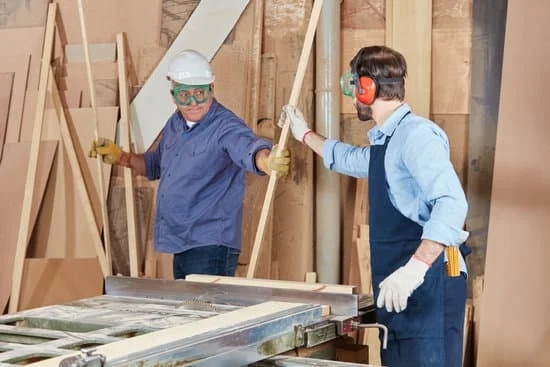Woodworking is an intricate craft that requires precision, skill, and creativity. However, even the most talented woodworkers cannot achieve their best work without the right tools and equipment. In this article, we will delve into the essential tools and gear that are a must-have for woodworkers of all levels. These tools not only make woodworking projects easier but also ensure safety and efficiency in the workshop.
Having the appropriate hand tools is crucial for any woodworker. From chisels to hand saws, these tools allow for fine detailing and shaping of wood pieces. Additionally, power tools play a significant role in saving time and effort during woodworking projects. The right combination of both hand tools and power tools can elevate the quality of work produced by woodworkers.
Safety should always be a top priority in any woodworking workshop. Wearing goggles, masks, ear protection, and gloves are essential to protect against flying debris and harmful fumes. Furthermore, clamps and fasteners are necessary for securing wood pieces during cutting or joining processes. By understanding the importance of each tool and piece of equipment outlined in this article, woodworkers can create a safe and efficient workspace for their craft.
Essential Hand Tools
As a woodworker, having the right tools is essential to ensure the successful completion of your projects. While there are numerous tools available, certain hand tools are considered must-haves for any woodworker. These tools not only help in accurately shaping and manipulating wood but also contribute to the overall quality of the finished piece. Here are some essential hand tools that every woodworker must have in their workshop:
- Chisels: A set of sharp chisels is crucial for carving out precise shapes and details in wood.
- Saws: Different types of saws, such as a coping saw, dovetail saw, or Japanese pull saw, are necessary for cutting wood with accuracy.
- Planes: Hand planes are indispensable for smoothing rough surfaces and ensuring flatness on wooden pieces.
In addition to these basic hand tools, other essential items include measuring tools like tape measures and squares for accurate measurements, marking knives or pencils for outlining cuts, and a hammer for driving nails or adjusting joints. Investing in high-quality hand tools not only improves the outcome of your woodworking projects but also enhances your overall woodworking experience.
Maintaining your hand tools by keeping them clean, sharpened, and properly stored is equally important to ensure their longevity and efficiency. By having a well-equipped collection of hand tools in your workshop, you can tackle a variety of woodworking tasks with ease and precision. Remember, having the right hand tools is truly a must-have for woodworkers who strive for excellence in their craft.
Power Tools
One of the fundamental power tools every woodworker must have is a table saw. Table saws are incredibly versatile and can make accurate rip cuts, crosscuts, bevel cuts, and more. They are ideal for cutting large pieces of wood with ease and precision. Additionally, a good quality miter saw is another indispensable tool for making precise angled cuts quickly and efficiently.
Another power tool that is a must-have for woodworkers is a cordless drill. Cordless drills provide the convenience of mobility without being restricted by cords, making them perfect for drilling holes or driving screws anywhere in the workshop or job site. They come in various sizes and power levels to suit different woodworking needs.
An essential handheld power tool that every woodworker should have in their arsenal is a random orbital sander. This versatile tool can smooth out rough surfaces, remove paint or varnish, and achieve a flawless finish on wooden projects. With its ability to provide swirl-free sanding action, a random orbital sander is indispensable for achieving professional-quality results in woodworking projects.
| Power Tool | Description |
|---|---|
| Table Saw | Ideal for accurate rip cuts, crosscuts, bevel cuts |
| Miter Saw | Perfect for making precise angled cuts quickly and efficiently |
| Cordless Drill | Provides mobility without being restricted by cords |
| Random Orbital Sander | Smooths rough surfaces, removes paint or varnish, achieves flawless finish |
Safety Equipment
Safety should always be a top priority in any woodworking project, making safety gear a must-have for woodworkers. Whether you are a beginner or a seasoned woodworker, protecting yourself from potential hazards is essential. Here are some of the key safety equipment items that every woodworker should invest in:
- Safety goggles: Protecting your eyes from flying debris, sawdust, and other particles is crucial when working with wood. A pair of safety goggles with side shields will provide adequate eye protection.
- Dust masks or respirators: Wood dust can be harmful to your respiratory system if inhaled regularly. Wearing a dust mask or respirator will help filter out potentially harmful particles and keep your lungs safe.
- Work gloves: A good pair of work gloves can protect your hands from splinters, cuts, and other injuries while handling rough wood pieces or sharp tools. Opt for gloves that provide both dexterity and protection.
In addition to these essentials, consider investing in ear protection if you work with loud power tools frequently. Earplugs or earmuffs can help prevent hearing damage over time. Remember, staying safe while woodworking not only ensures your well-being but also allows you to focus on creating quality projects without unnecessary risks.
- Safety goggles
- Dust masks or respirators
- Work gloves
Clamps and Fasteners
Types of Clamps
Clamps are essential tools for woodworkers as they help secure pieces of wood together during various projects. There are several types of clamps available in the market, each serving a specific purpose. One of the most common types is the bar clamp, which is versatile and can apply pressure from both ends. Spring clamps are handy for smaller projects or holding pieces temporarily in place. Pipe clamps are great for larger projects and can provide substantial pressure.
Fasteners for Woodworking
In addition to clamps, fasteners play a crucial role in woodworking projects by joining pieces of wood securely. Screws, nails, and dowels are some of the most commonly used fasteners in woodworking. Screws provide a strong hold and can be removed easily if needed, making them ideal for furniture assembly. Nails are quick to install and suitable for lighter applications or temporary fixtures. Dowels create a strong joint between two pieces of wood and are often used in furniture construction.
Specialty Clamps and Fasteners
For more specialized woodworking projects, there are specific clamps and fasteners available that cater to unique needs. Edge clamps are designed to hold pieces together at a right angle, making them perfect for creating frames or boxes. Parallel clamps apply even pressure across the entire length of the piece, ensuring a tight bond without causing damage. Specialty fasteners like pocket hole screws make joinery easier and faster, especially for connecting pieces at awkward angles.
Having a variety of clamps and fasteners in your workshop is a must-have for woodworkers to ensure proper alignment and secure connections during their projects. It is essential to invest in high-quality clamps and fasteners that suit the specific requirements of each project to achieve professional results effectively.
Workbenches and Workstations
Woodworkers know that having the right workbench and workstation is a crucial element in their workspace. These pieces of furniture not only provide a stable surface for working on projects but also contribute to organization and efficiency. There are various types of workbenches and workstations available, each serving different purposes and catering to the specific needs of woodworkers.
Types of Workbenches
One popular type of workbench is a traditional woodworking bench, typically made from solid wood with sturdy legs. This type of bench provides durability and stability, ideal for hand tool work and heavy-duty projects. Another common option is a portable workbench, which can be easily moved around the workshop or even taken to job sites. These benches are versatile and convenient for woodworkers who need flexibility in their workspace.
Specialized Workstations
In addition to basic workbenches, specialized workstations can offer added functionality for certain tasks. For example, some woodworkers may benefit from a sharpening station dedicated to keeping tools like chisels and plane irons well-honed. Others may find a sanding station useful, with built-in dust collection systems to minimize cleanup. By incorporating specialized workstations into their workspace, woodworkers can streamline their processes and save time on repetitive tasks.
Customization and Personalization
Many woodworkers choose to customize their workbenches and workstations to suit their specific needs. This could involve adding storage drawers, installing vises or clamps for securing projects, or even integrating power outlets for charging tools.
By tailoring these furniture pieces to individual preferences, woodworkers can create a more ergonomic and efficient workspace that enhances their productivity. Investing in high-quality workbenches and workstations is definitely a must-have for woodworkers looking to elevate their craft and create an organized environment conducive to successful projects.
Wood Finishing Supplies
Another essential supply for wood finishing is wood stain or paint. Wood stain adds color to the project while still allowing the natural grain of the wood to show through. On the other hand, paint provides a vibrant and opaque finish that can completely transform the look of the piece. Woodworkers should choose a stain or paint that complements their design aesthetic and offers the level of protection needed for the project.
Furthermore, protective finishes such as polyurethane or varnish are must-haves for woodworkers looking to protect their projects from wear and tear. These finishes not only add a layer of protection against moisture, heat, and scratches but also enhance the overall look of the piece by adding depth and richness to the wood’s appearance.
It is crucial for woodworkers to select the appropriate protective finish based on the project’s intended use and location to ensure its longevity and durability over time.
| Wood Finishing Supplies | Importance |
|---|---|
| Sandpaper | Smoothens surfaces and prepares them for finishing |
| Wood Stain or Paint | Adds color and enhances the natural beauty of the wood |
| Protective Finishes (Polyurethane/Varnish) | Provides protection against wear and tear while enhancing appearance |
Storage and Organization
In conclusion, having the right tools and equipment is a must-have for woodworkers to ensure efficiency, precision, and safety in their projects. From essential hand tools to power tools that save time and effort, each item plays a crucial role in creating quality woodworking pieces. Additionally, safety gear such as goggles, masks, and gloves are indispensable to protect woodworkers from potential hazards.
Furthermore, clamps and fasteners are vital for securing wood pieces during projects, while different types of workbenches and workstations can enhance organization and workflow in the workspace. Proper storage and organization of tools and materials also contribute significantly to a productive woodworking environment. By investing in storage solutions like tool chests, shelves, or pegboards, woodworkers can easily access their equipment when needed.
Lastly, wood finishing supplies are necessary for completing projects with a professional touch while ensuring durability. By following these tips and recommendations for storage and organization, woodworkers can create a well-maintained workshop that enhances their craftsmanship capabilities. Overall, these tools and practices are not just beneficial but are indeed a must-have for woodworkers seeking success in their craft.
Frequently Asked Questions
What Does a Woodworker Need?
A woodworker needs a variety of tools and equipment to effectively work with wood. Some essential tools include saws, chisels, planes, measuring tools, clamps, sanders, and drilling machines. Additionally, safety equipment such as goggles, gloves, and ear protection are crucial for the woodworker’s well-being.
What Is the Essential Tool for Every Woodworker?
One of the most essential tools for every woodworker is a quality set of chisels. Chisels are versatile tools that can be used for a wide range of tasks including carving, shaping, and smoothing wood surfaces. They come in various sizes and shapes to accommodate different woodworking projects, making them indispensable for any woodworker.
What Do I Need for Beginner Woodworking?
For beginner woodworking, it is important to start with basic hand tools such as a hammer, tape measure, handsaw, chisels, and a square. These tools will allow beginners to practice fundamental woodworking skills before moving on to more complex power tools. Additionally, having access to good quality lumber and a sturdy workbench is essential for successful beginner woodworking projects.

Hi everyone! I’m a woodworker and blogger, and this is my woodworking blog. In my blog, I share tips and tricks for woodworkers of all skill levels, as well as project ideas that you can try yourself.





